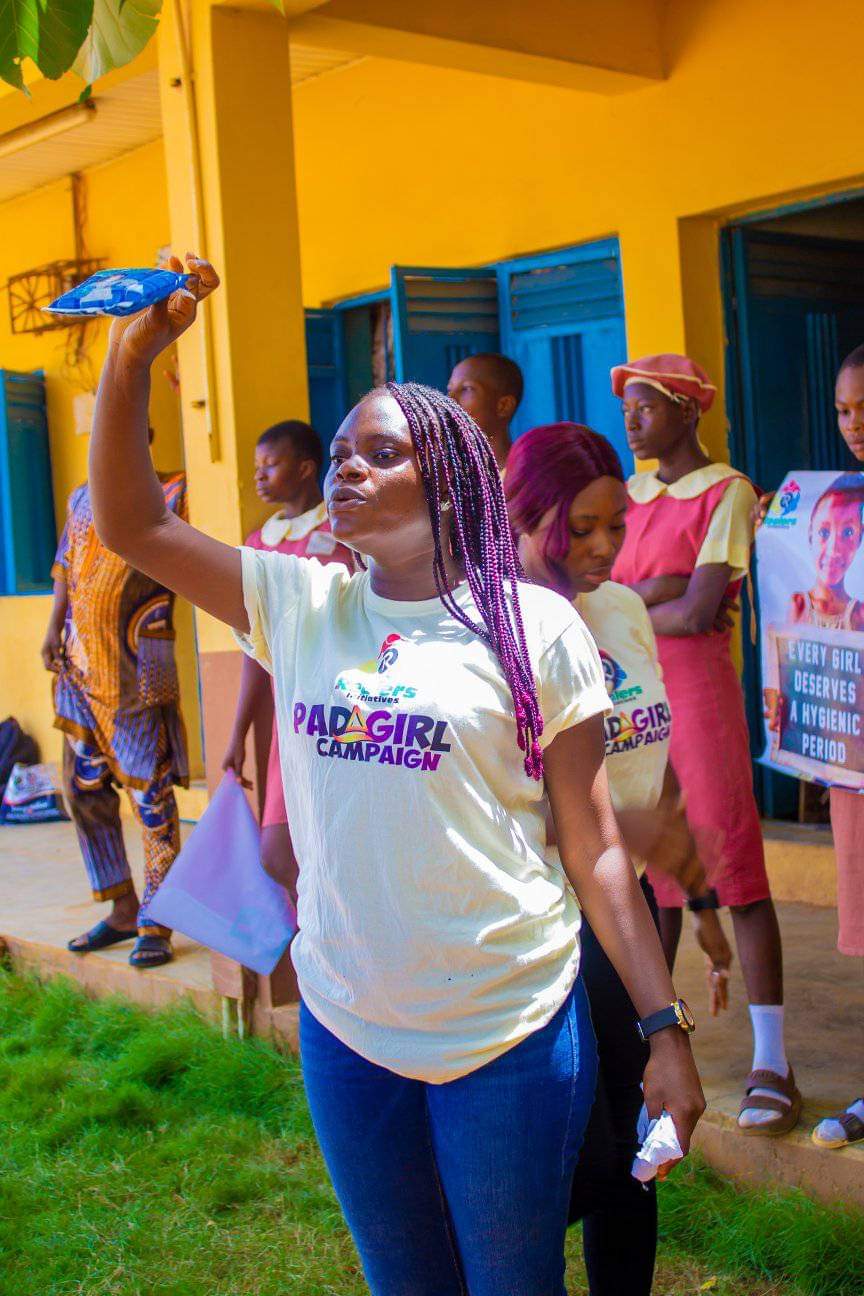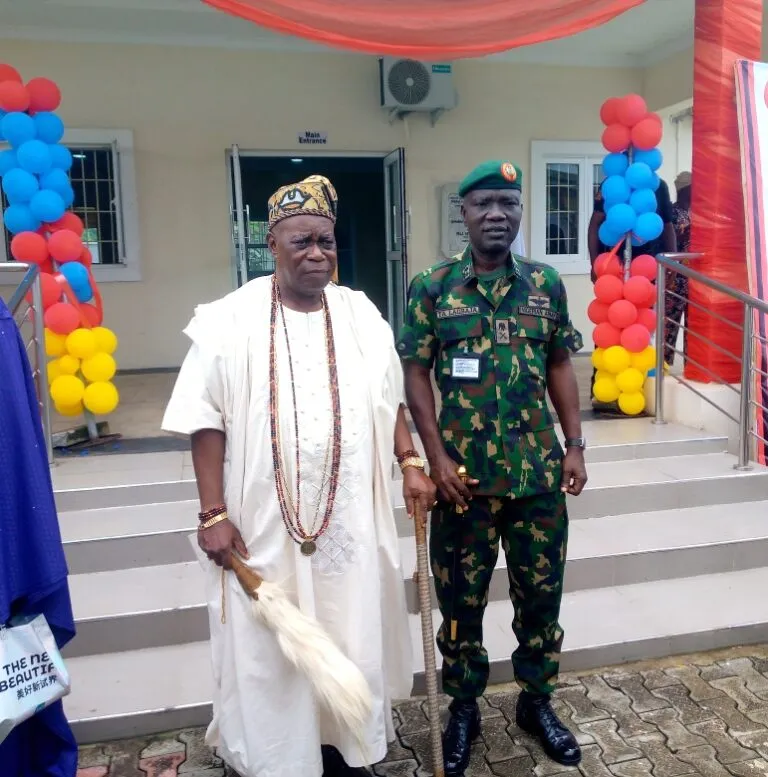Young people raising awareness and advocating for the use of menstrual pads for young girls in local communities in line with the World Health Organization (WHO) standard hold immense significance.
By taking on this important cause, the youths are actively addressing a critical aspect of menstrual hygiene management and working towards ensuring the well-being and dignity of girls. Their efforts can lead to increased access to safe and affordable menstrual products, reducing the risk of infections and discomfort associated with unhygienic alternatives.
Furthermore, by aligning their advocacy with WHO standards, young people are promoting evidence-based practices and contributing to the normalization of menstrual health conversations, challenging social taboos and stigmas that surround menstruation.
Through their commitment, they inspire positive change, empowering young girls with knowledge, resources, and the confidence to manage their menstrual health effectively, ultimately fostering a healthier and more equitable future for all.
In Epe LocalGovernment, the Fish Basket of Lagos State is a young and vibrant advocate, Olundegun Zainab, who has been at the forefront of the “Pad a Girl-Child” advocacy with her team, the Reelers Initiative. In commemoration of World Menstrual Day, she alongside her team stormed the famous Epe Girls High School, Epe, to raise awareness for young girls in the feminine-based school across the Epe Division.
Speaking in an interview with Kakalistiq Media, Zainab highlighted the educational significance of sensitization to young girls, stressing that hygienic menstrual practices are a must for them to imbibe for healthy living.
She expressed heartfelt appreciation towards her team, and sponsors and also called for more well-meaning individuals, public-spirited persons, and organizations to support the project to be able to reach out to more girl children across schools in the community.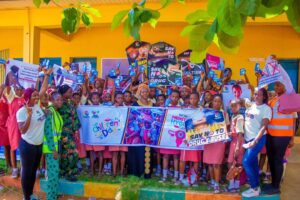
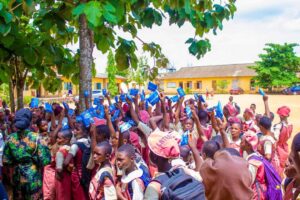
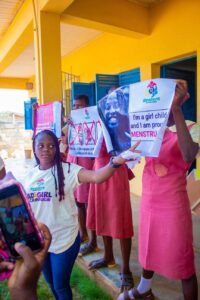
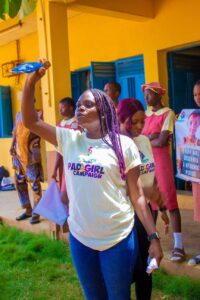
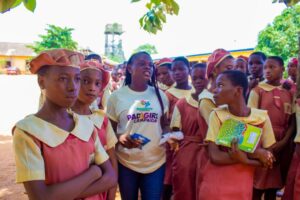
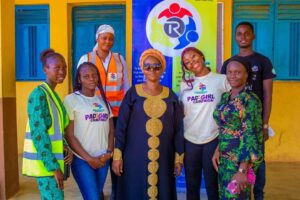
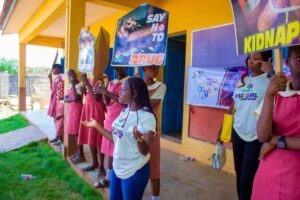
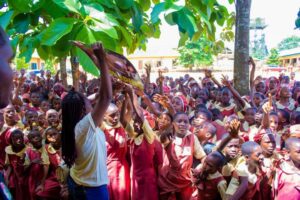

“For the celebration of world menstrual day, my team and I were at Epe Girls High School, to enlighten and sensitize the student about menstrual hygiene and also the distribution of pads
We made them know how unhygienic it is to make use of clothes, tissues, socks e.t.c, as their menstrual products.
Also, we enlightened them on the risk that comes with an unhygienic flow, we educated them on the numerous hygienic ways they can care for themselves during their flow and how to dispose of their used pads properly. Despite the self-support and intervention from well-wishers, we are open to support for more sponsors as we aim to touch more schools in Epe,” she said.
According to the World Health Organization, access to menstrual hygiene products is emphasized as utmost importance in ensuring that all women and girls have access to a range of affordable and safe menstrual hygiene products, including menstrual pads. This includes addressing affordability, availability, and quality issues.
Also, the WHO promotes the use of hygienic and safe practices during menstruation to prevent infections and other health risks. This includes using clean and absorbent materials, such as menstrual pads, and proper disposal methods.
The importance of comprehensive menstrual health education for girls and women is another critical issue prioritized by WHO. This includes providing accurate information about menstruation, menstrual hygiene practices, and the use of menstrual products, promoting body literacy, and debunking myths and misconceptions.
The need to break taboos and reduce the stigma surrounding menstruation is one of the highlights of the WHO standard. This involves creating supportive and inclusive environments where open discussions about menstruation are encouraged, addressing cultural and social norms that perpetuate shame or discrimination, and promoting menstrual health as a normal part of life.
The WHO also seeks sustainable and environmentally friendly solutions through the development and use of sustainable and environmentally friendly menstrual hygiene products, including reusable menstrual pads, as a means to reduce waste and promote long-term affordability and accessibility.

